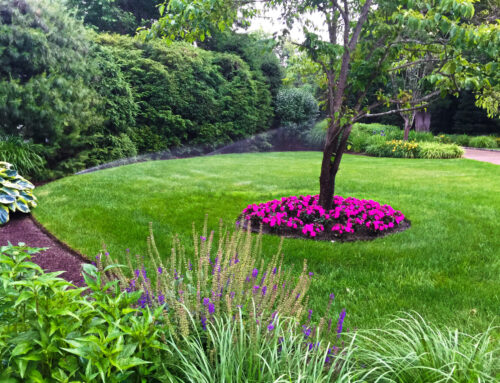Our landscaping crews recently planted a grove of young white birch trees in Hudson. We love these trees, with their strong but delicate silhouette and bark that peels away in long, uniform strips! They’re perfect trees to plant in our New York and Connecticut climate — the white birch tree is actually native to the Connecticut River Valley.
These trees need plenty of sunlight and thrive in well-draining, moist soil heavy on the sand, silt, and clay. Under the right conditions, the trees can grow up to 70 feet tall, with a 35-foot spread. They’re beautiful additions to New York and Connecticut landscapes!
Taking your backyard to the next level begins by contacting us here or with a simple phone call to Neave Landscaping at one of our three convenient locations:
-
In the Hudson Valley NY, area, call 845-463-0592.
-
In Westchester County NY, dial 914-271-7996.
-
In Fairfield County CT, contact us at 203-212-4800.
How Long Do Birch Trees Live?
What is the average birch tree lifespan? The answer to this question depends in part on the species of the tree. It also depends on its growing conditions.
Facts About Birch Trees
There are so many other things about birch trees you may not know. Here are a few little-known “fun facts” about our beloved birches.
Fact #1
Early American Indians discovered they could use birch trees (especially their bark) for a number of everyday things. They built wigwams and other housing structures, as well as canoes, from the trees’ bark. Birch bark was lightweight — one person could carry a canoe on his own — but could support an impressive amount of weight.
Fact #2
Birch bark has been used as paper for centuries…long before what we know now as the paper was invented. Some of the earliest birch bark paper discovered holds Buddhist manuscripts thought to be from Afghanistan.
Fact #3
The wood of a birch tree is flammable even when it’s wet. That means it’s great for campfires in all kinds of weather in New York and Connecticut!
Fact #4
Birch trees’ biggest enemy: bronze birch borer, a beetle that loves to prey on stressed trees. This close cousin to the dreaded emerald ash borer burrows into the bark and trunk of birch trees, causing major damage and often killing them. The good news is that if your tree is showing signs of stress, your tree care specialist can inject your tree with a preventive chemical to stop borers from doing their worst.
More good news: Since the emergence of bronze birch borer, many new birch species and varieties have been discovered that are resistant to the pest, including river birch, which grows beautifully in New York and Connecticut.
Fact #5
Both male and female birch trees flower (the name for that is “monoecious”). The flowers, known as catkins, on male trees droop down — and on female trees, they sit upright.
Fact #6
Though birch trees grow quickly, they don’t live as long as other ornamental trees. The average lifespan of a birch tree is about 140 years, still long enough for your family to enjoy its beauty for generations.
Fact #7
White birch trees aren’t the only kind of birch tree out there. In addition to the river birch, which we mentioned earlier, there are at least 10 birch species native to North America, and much more native to Europe and Asia. They’re all characterized by the eye-shaped markings in their bark, earning them the nickname of “The Watchful Tree.”
Love Birch Trees Even More Now?
If you’re a homeowner lucky enough to have a stately birch in your landscape, now you’ll be able to impress your neighbors and guests with all kinds of birch tree trivia. Love the beautiful birch even more and want a grove of your own? Contact the tree-care professionals at Neave Landscaping!
We’ll set up a complimentary property assessment that will determine the best type of trees (and other plants) for your landscape, and help you design and install the perfect outdoor living space. We can even help you care for your trees and plants after we’ve installed them.
If you’re in the Hudson Valley, call (845) 463-0592. From Westchester County, dial (914) 271-7996, and if you’re in Connecticut, call us at (203) 212-4800. Or fill out the web form on our site, and we’ll contact you to set up a consultation.
Image credit: Wikipedia

























